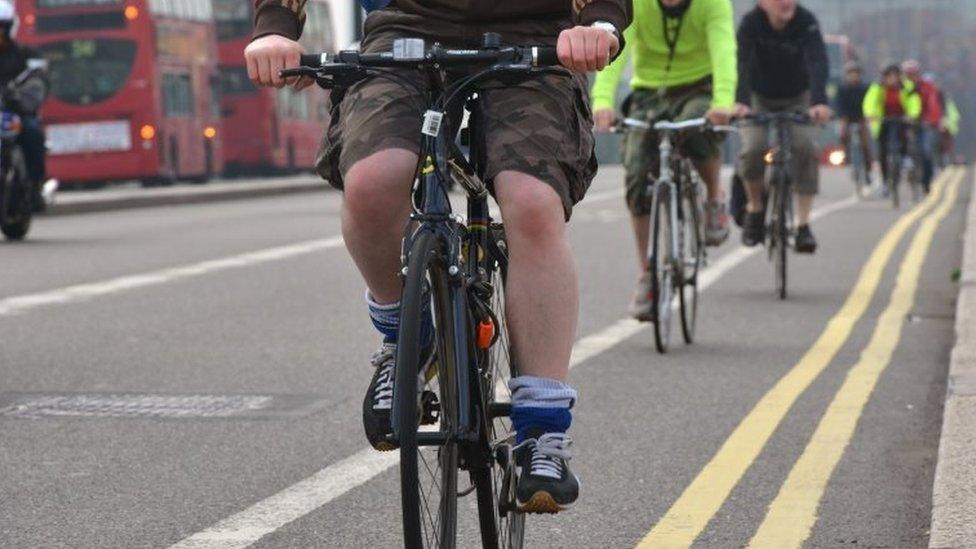London cycling: Car parking permits cheaper than bike storage
- Published
- comments
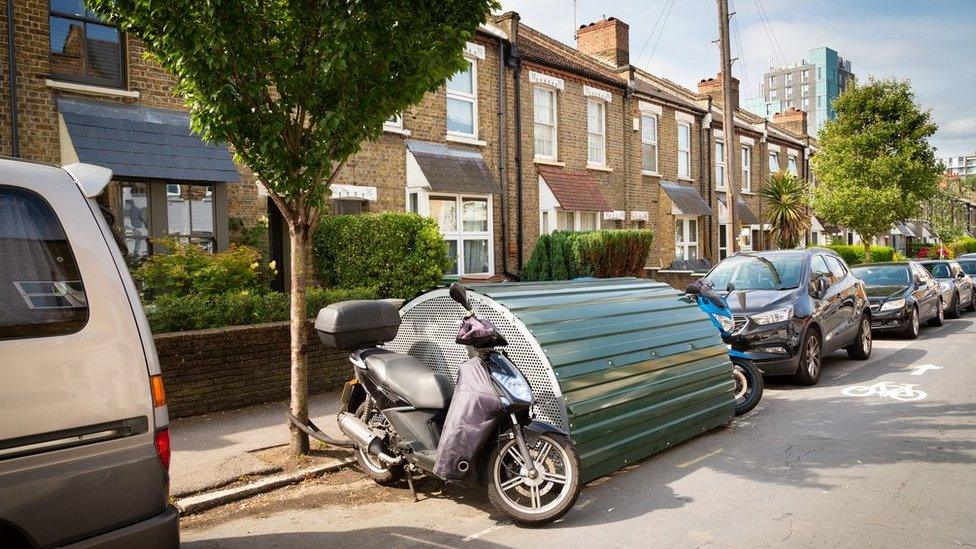
Hangars can store six bikes in half the space a car takes up, Islington Council says
The cost of storing a bike in a hangar is five times higher than a car parking permit in some areas of London.
Only six boroughs offer bike storage at cheaper or similar rates to the cost of a permit and in 10 boroughs electric vehicles can be parked free of charge.
Cyclists can pay up to £107 for bike hangar usage annually, despite taking up much less space than drivers do.
Simon Munk from the London Cycling Campaign said that the price disparity was "discouraging" cycling in the city.
The #ThisIsAwkward campaign, which was launched in March, showed Londoners storing bikes in unusual places around their homes.
Some of these images can now be seen on billboards around the capital.
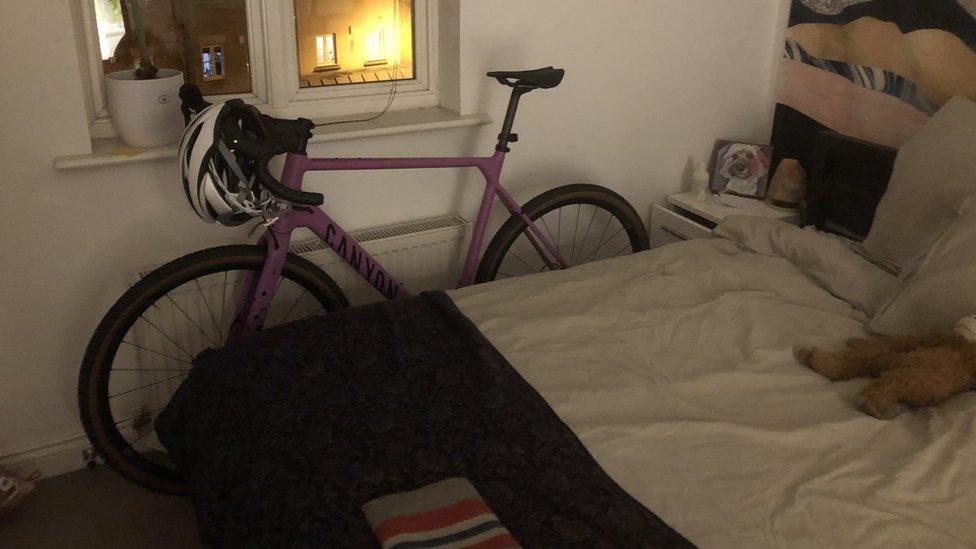
The #ThisIsAwkward campaign highlights the storage issues some cyclists face
In as many as 10 boroughs, electric vehicle owners are able to obtain a free parking permit due to their vehicles' low emissions.
Islington Council, which charges £25 a year for electric vehicle permits, and as little as £30 for other cars, has the highest bike hangar rental cost in London, at £107 a year.
The north London borough has a waiting list of almost 7,000 people for use of its hangars.
'Ridiculous'
Oliver Lord of the Clean Cities Campaign believes Islington Council is not doing enough to encourage cycling.
"It's ridiculous," he said.
"Bike parking should never cost more than car parking. And we know around half of Londoners are put off taking up cycling because of lack of secure parking."
Mr Lord also wants local authorities to rethink their car permit policies.
"We've got it the wrong way around," he added.
"If you can afford an electric car in Islington, then you can afford more than £25 a year to park it outside your house.
"The way I look at it, is it's too cheap to park a car in these boroughs, so councils should be rebalancing things by charging more for car parking and using that money to fund cheap cycle parking spaces."
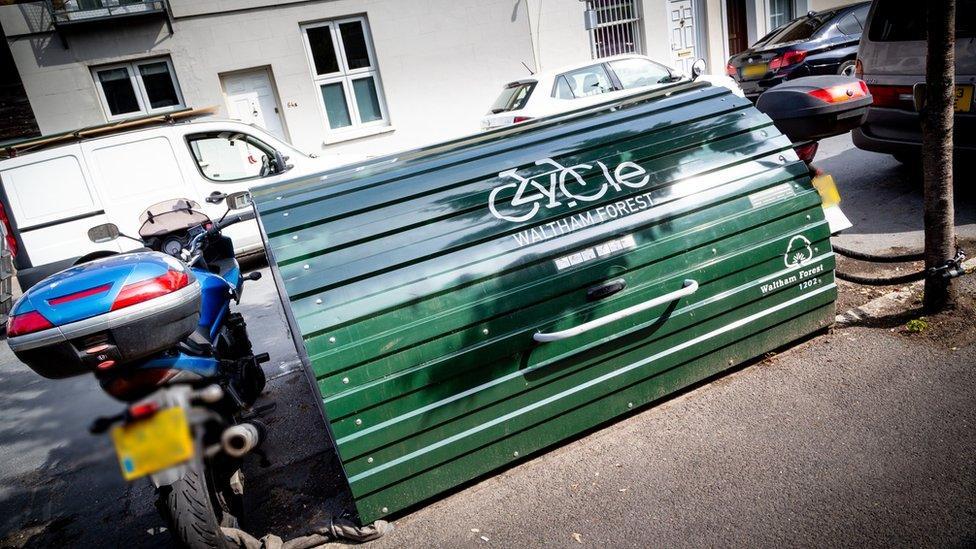
Demand for bike hangars is almost three times higher than supply, according to the Clean Cities Campaign
Enfield residents only pay £12 a year to use a hangar, but with six spaces in one unit and some car parking permits costing £55 a year, cyclists are still paying more for the same available space.
An Enfield Council spokesperson said: "We currently use a TfL-subsidised funding model for these hangars which has helped to keep costs down to encourage initial take-up. Looking ahead, we are seeking an alternative funding model so we can continue to offer safe and secure cycle parking for those who wish to travel actively across the borough."
"Bike parking should be plentiful," said Mr Munk.
"It should never cost more to park your bike than it should to park your car. One machine fights climate change, the other causes it."
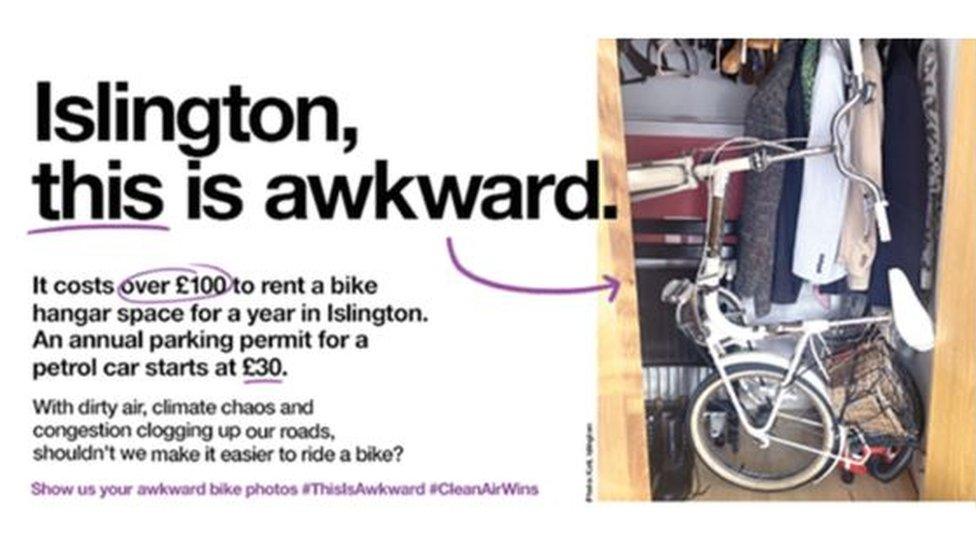
The Clean Cities Campaign aims to encourage a transition to zero-emission mobility by 2030
He added: "The cheap availability of car parking spaces over expensive bike parking spaces can discourage cycling journeys from even being made.
"Many [car] parking permits allow you to park anywhere in your borough, which means you can drive from place to place. With a bike hangar, that's fixed in one spot. So you need to make sure that your destination has secure bike parking too."
Cyclehoop, which provides most of London's bike hangars, says each unit costs £3,550 to produce and £400 to deliver.
It charges £72 a year to maintain each space, a price matched by six councils.
However, Islington and Kingston councils both charge more than this. The former says that its cycle storage scheme is "cost-neutral" and ensures hangars are "always serviceable".
An Islington Council spokesperson said: "By encouraging local people to use more sustainable modes of transport, we can help create a more environmentally friendly borough for all, and help towards our target of creating a net-zero carbon borough by 2030."
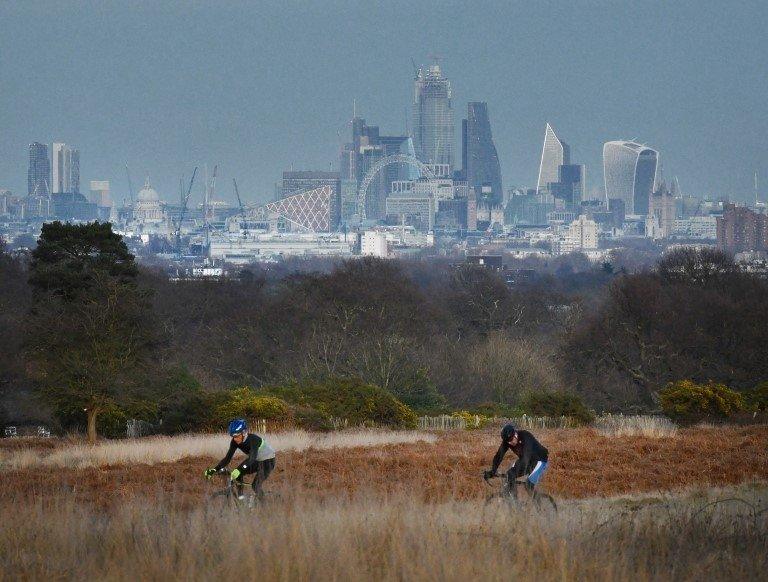
The number of journeys cycled in the capital doubled during the coronavirus pandemic, according to Transport for London
"We are proud to have installed more bike hangars than almost any other borough in London," the spokesperson said.
"Our on-street bike hangars already provide 2,400 spaces for residents to securely park their bikes, with space for another 1,200 planned over the next two years.
"Free secure bike storage for residents on our council estates adds a further 2,000 spaces, with another 800 on the way."
The spokesperson added: "Our scheme is set up to be cost-neutral - we charge a fee that allows it to be financially sustainable for the long term, which is especially important given the level of demand in Islington."
- Published7 April 2022

- Published30 July 2021
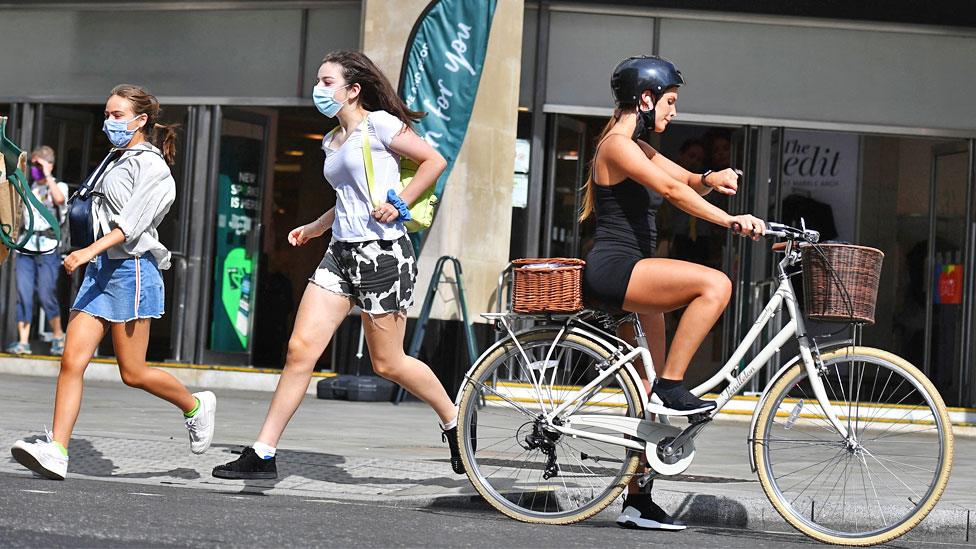
- Published30 June 2021
